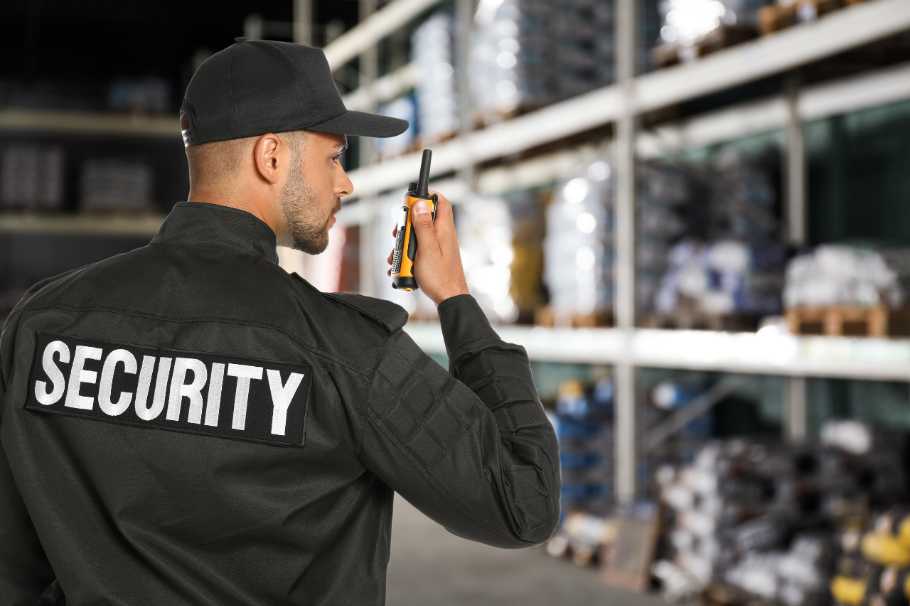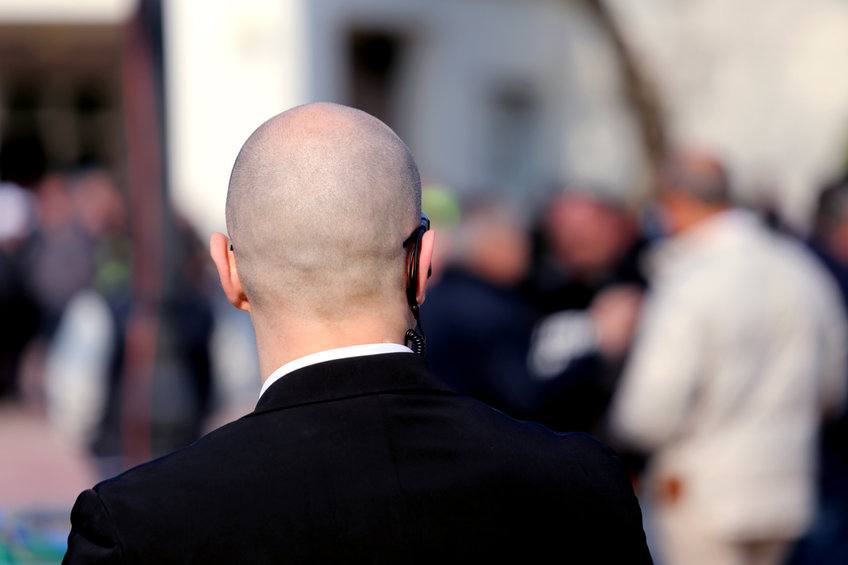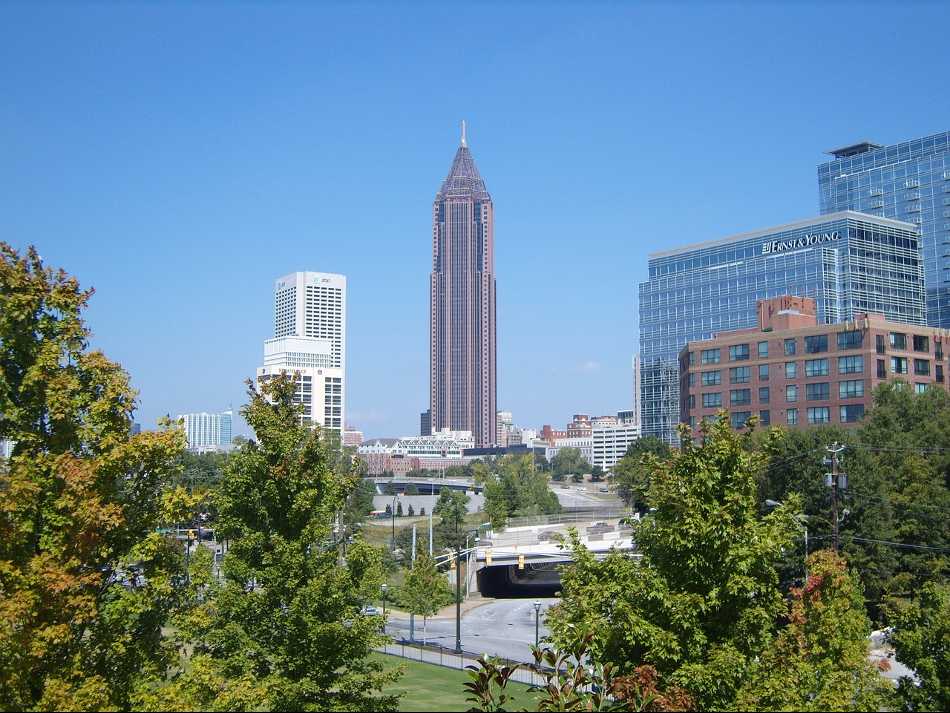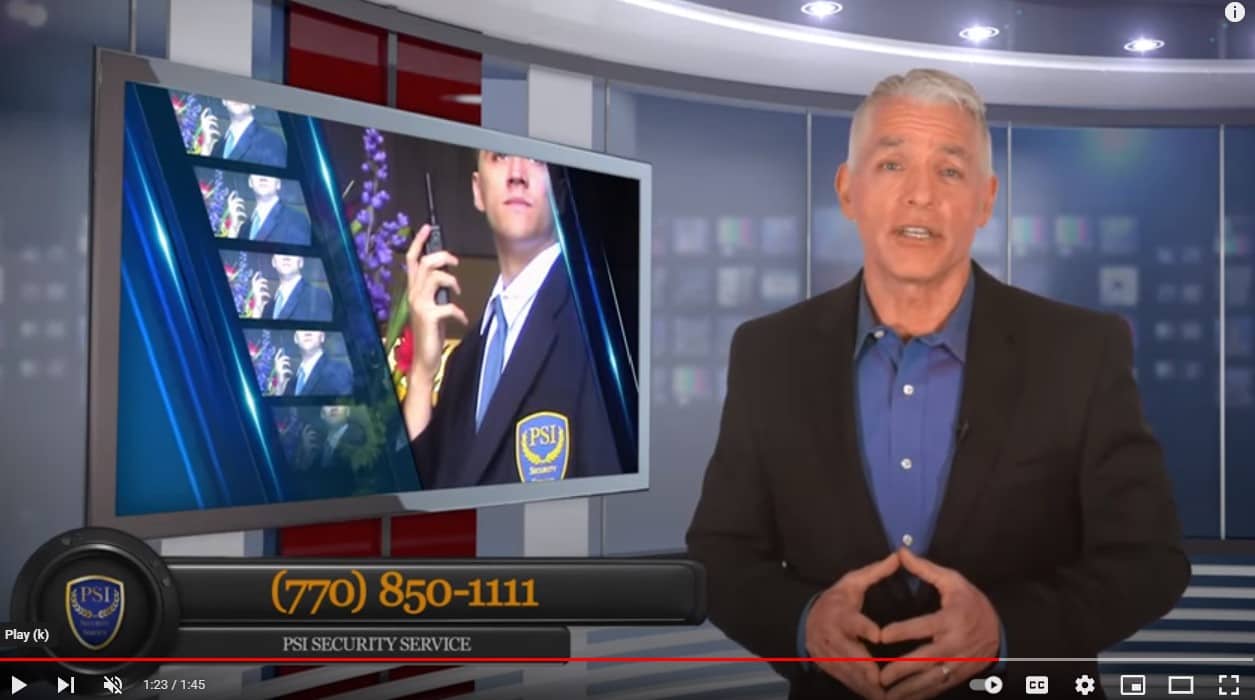Hiring unlicensed security services may seem like a budget-friendly shortcut, but it can lead to serious legal, financial, and safety consequences. Whether you’re hiring for an event, property protection, or ongoing business surveillance, choosing the wrong provider puts everything at risk. Understanding the signs of unlicensed operations is the first step toward protecting your people and assets.
Key Takeaways:
- Unlicensed security services pose a growing risk in the industry, particularly in high-demand areas such as Atlanta.
- Hiring unlicensed guards can lead to legal liabilities and compromised safety.
- Learn how to identify red flags such as vague credentials, pricing that is too good to be true, and a lack of insurance.
- Work only with verified, licensed private security guards who meet state and local requirements.
Why Licensing Matters in the Security Industry
In Georgia and across the U.S., all security services must meet strict licensing requirements. Licensing ensures guards are properly trained, background-checked, and held accountable by a governing body. This protects clients from poorly qualified personnel, negligence, and criminal risks.
In Atlanta, security guards must be registered through the Georgia Board of Private Detective and Security Agencies. Companies must also carry liability insurance and adhere to training and conduct standards. Choosing unlicensed providers opens the door to uninsured losses, substandard performance, and even fraud.
Pro Tip: Always verify a provider’s license number through your state licensing board before signing a contract.
1. Vague or Missing Licensing Information
A legitimate security service provider will prominently display their license number on contracts, websites, and ID badges. If you can’t find any license information—or the company dodges questions about it—that’s a major red flag.
Watch out for:
- No mention of licensing on their website
- Refusal to provide verification
- Employees without identification cards or uniforms
- Confusing or misleading business names (designed to mimic licensed competitors)
In Georgia, you can confirm licensing by contacting the Georgia Secretary of State’s Licensing Division.
2. Suspiciously Low Rates
Professional private security guards undergo extensive training and background checks. That costs time and money. If someone offers security services far below market rates, it usually means they’re cutting corners—or operating illegally.
Red flags include:
- Prices that undercut competitors by 30% or more
- No written service agreement or formal quote
- Pressure to pay in cash or up front without documentation
Pro Tip: Fair pricing reflects proper insurance, legal compliance, and trained personnel. Too cheap is too risky.
3. Lack of Insurance or Bonding
Licensed security guard firms are legally required to carry general liability insurance, workers’ compensation, and, in many cases, bonding. This protects clients if a guard causes property damage or someone is injured during a shift.
Unlicensed companies rarely carry proper insurance, leaving you vulnerable to lawsuits or out-of-pocket costs.
Ask for:
- Certificate of Liability Insurance (COI)
- Proof of bonding (if applicable)
- Workers’ compensation coverage for all deployed guards

4. Unprofessional Behaviour or Poor Training
One of the most significant dangers of unlicensed security services is inadequate or nonexistent training. These individuals often lack:
- Conflict resolution skills
- Emergency response knowledge
- Report writing and de-escalation tactics
- Legal understanding of rights, detainment, and use-of-force protocols
- If a guard shows up late, unkempt, distracted, or unable to answer basic safety questions, they probably aren’t licensed or properly trained.
Pro Tip: Legitimate firms invest in customer service and ongoing training. Always ask about training programs and guard certifications.
5. No Physical Office or Professional Website
Reputable Atlanta security guards typically have a physical business address, a professional website, and a legitimate online presence. Unlicensed providers often rely solely on classified ads, flyers, or word of mouth.
Signs of a questionable business:
- No Google Business profile or customer reviews
- No physical location or mailing address
- A website with no employee bios, company history, or license credentials
- Free email addresses (e.g., Gmail or Yahoo)
6. No Written Contract or Clear Terms
A written contract should outline the scope of work, responsibilities, liabilities, and expectations on both sides. Unlicensed security services often work without contracts or use vague templates with limited detail.
Risks include:
- No accountability for missed shifts or poor performance
- Unclear refund or cancellation policies
- Misunderstandings over duties and limits of authority
A clear, legally sound agreement protects both parties and should be non-negotiable.

7. Pressure Tactics or Unclear Communication
High-pressure sales tactics are commonly employed by shady vendors. If someone pushes you to make a quick decision, offers discounts only valid “today,” or dodges detailed questions—that’s a red flag.
Professional companies encourage informed decisions, offer references, and allow time to review service terms.
8. Inconsistent Uniforms or Equipment
Atlanta security guards working under a legitimate provider will wear consistent, branded uniforms and use standard equipment (radios, ID badges, notebooks). Unlicensed providers often use piecemeal clothing or equipment sourced from online retailers, lacking any accountability or traceability.
Ask:
- What uniform and gear do guards use?
- Are they identifiable on-site?
- Do guards carry a valid company ID?
9. No Emergency Protocols or On-Call Support
Emergencies can happen anytime. A licensed firm will provide a 24/7 emergency contact line and documented escalation procedures. If the company can’t explain how they’ll handle threats, theft, or medical incidents, you’re on your own when it matters most.
Pro Tip: Before hiring, request a copy of the firm’s emergency response protocol or ask how incidents are documented and escalated.
Unlicensed Security Services Final Thoughts
Hiring unlicensed security services may seem like a cost-saving decision, but it often leads to far greater losses, both financially and legally. From untrained guards to missing insurance and a complete lack of accountability, the risks are simply too high.
Always do your due diligence:
- Verify licensing through your state board
- Request references, insurance certificates, and contracts
- Observe professional conduct and communication
Working with a reputable provider like PSI Security Service gives you peace of mind. With over 30 years of experience in Georgia’s security industry, PSI offers fully licensed, insured, and trained private security guards for every setting—from retail and commercial to residential and events. Don’t settle for less when safety is on the line. Questions about security services? Click here to send us a message or call (770) 850-1111.
Unlicensed Guards FAQs
What are the risks of hiring illegal or unlicensed guards?
Hiring unauthorized or unlicensed security guards can expose you to:
- Legal liabilities
- Lack of insurance coverage
- Poor emergency response
- Property damage or injury
- Reputation loss in case of incidents
Always check credentials and demand transparency before signing a contract.
How do I verify if a security company is licensed in Georgia?
To verify a license, visit the Georgia Secretary of State’s licensing portal and search for the business or individual’s license number. Licensed Atlanta security guards and their companies must be registered and compliant with Georgia’s regulations.
Are cheap security services always unlicensed?
Not always, but be cautious. If the rate is significantly lower than that of competitors, it may indicate that the company is skimping on training, insurance, or licensing. Look for signs of unlicensed private security providers, such as the absence of paperwork, cash-only transactions, and unverifiable references.


